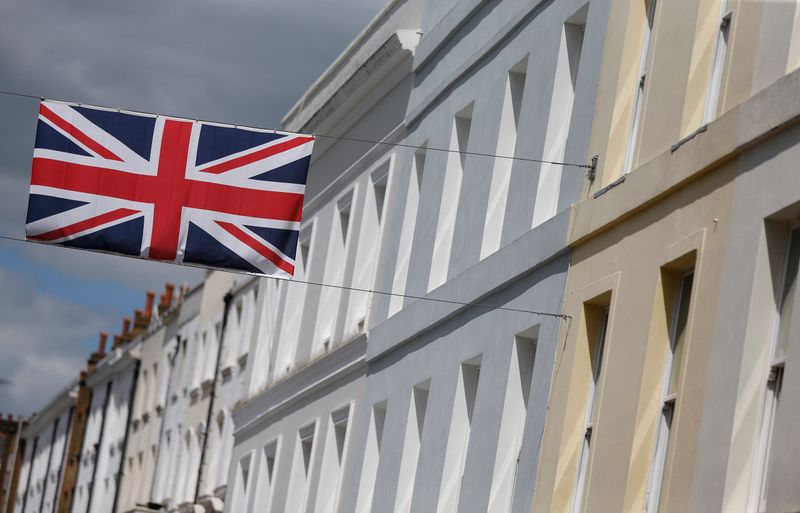LONDON (Reuters) - Asking prices for British homes rose by 0.7% between mid-June and early July compared with a month earlier, the biggest rise for the time of year since 2007 despite the scaling back of a tax break for buyers on July 1, property website Rightmove said.
The increase was aggravated by a shortage of properties on the market and pushed average asking prices to a record high for the fourth month in a row, Rightmove said. Asking prices have risen by 6.7% over the past six months.
June probably saw a record number of house sales as buyers in England and elsewhere in the United Kingdom rushed to beat a June 30 tax break deadline, Tim Bannister, Rightmove's director of property data, said.
"This has left prospective purchasers with the lowest choice of homes for sale that we've ever recorded, continuing price rises, and stretched affordability," Bannister said.
Rightmove, which says it advertises 95% of homes for sale in Britain, said the imbalance between supply and demand was likely to support the market. The data was collected between June 13 and July 10.
British house prices have surged since the coronavirus pandemic struck as people working from home sought bigger properties and the government cut the purchase tax.
The first 500,000 pounds ($692,000) of any property purchase in England or Northern Ireland was exempt from stamp duty until the end of June. A 250,000 pound tax-free allowance remains until the end of September.
A similar but smaller incentive in Wales expired on June 30.
Official data, based on completed transactions, showed British house prices in the year to May rose by 10%, matching their biggest increase since 2007.
The boom in the housing market helped to soften last year's 10% slump in the economy but has widened wealth inequalities between property owners and those without their own homes.
Separately on Monday, a survey showed confidence amongst consumers in Britain edged back to pre-pandemic levels in the April-June period, helped by the lifting of many social-distancing rules.
The report by Deloitte also found 79% of respondents saved money during the pandemic. Of them, 58% intended to spend more on holidays, eating, going out and clothing over the next three months. The survey questioned more than 3,000 people in Britain between June 18 and June 21.
Another survey found a slight slip in confidence among small businesses after delays to the final lifting of coronavirus rules, but growth expectations and hiring plans remained strong.

The Federation of Small Businesses said 50% of small business owners predicted improved business in the next three months compared with 32% who expected it to worsen. The survey of 1,561 small firms took place between June 24 and July 9.
($1 = 0.7230 pounds)